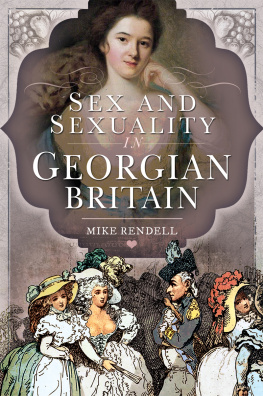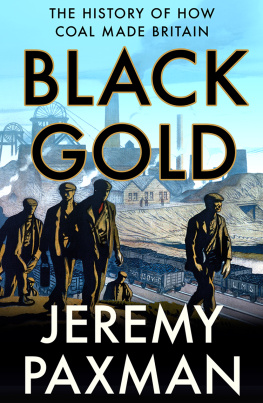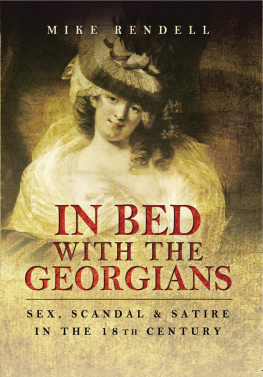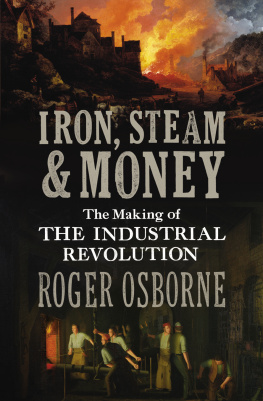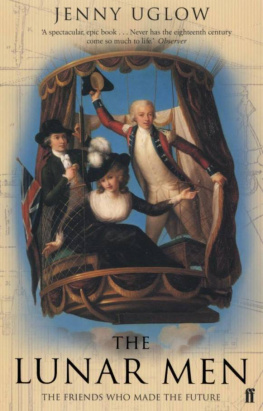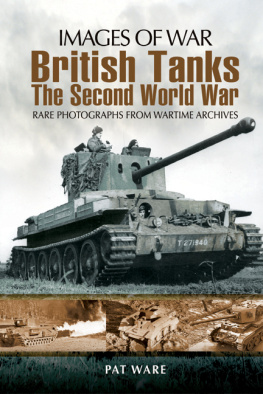First published in Great Britain in 2020 by
Pen & Sword History
An imprint of
Pen & Sword Books Ltd
Yorkshire - Philadelphia
Copyright Mike Rendell, 2020
ISBN 978 1 47388 609 4
eISBN 978 1 47388 611 7
Mobi ISBN 978 1 47388 610 0
The right of Mike Rendell to be identified as Author of this work has been asserted by him in accordance with the Copyright, Designs and Patents Act 1988.
A CIP catalogue record for this book is available from the British Library.
All rights reserved. No part of this book may be reproduced or transmitted in any form or by any means, electronic or mechanical including photocopying, recording or by any information storage and retrieval system, without permission from the Publisher in writing.
Pen & Sword Books Ltd incorporates the Imprints of Pen & Sword Books Archaeology, Atlas, Aviation, Battleground, Discovery, Family History, History, Maritime, Military, Naval, Politics, Railways, Select, Transport, True Crime, Fiction, Frontline Books, Leo Cooper, Praetorian Press, Seaforth Publishing, Wharncliffe and White Owl.
For a complete list of Pen & Sword titles please contact
PEN & SWORD BOOKS LIMITED
47 Church Street, Barnsley, South Yorkshire, S70 2AS, England
E-mail:
Website: www.pen-and-sword.co.uk
or
PEN AND SWORD BOOKS
1950 Lawrence Rd, Havertown, PA 19083, USA
E-mail:
Website: www.penandswordbooks.com
Preface
In one of my previous books, Trailblazing Women of the Georgian Era , I looked at some of the women who broke the mould who dared to succeed in what was very much a mans world. Women were the disenfranchised minority an underclass denied education and legal rights. Yet some stood out and challenged the perception that women were only fit for running the home and rearing the nations children. I felt that such pioneers deserved to be remembered.
In this book I want to look at a different section of under-appreciated people, coming from a very different group. For a start, they are all men. They were not downtrodden or denied opportunity but for one reason or another they have never received the recognition they deserve.
Their story plays on the age-old question: what is fame? Nowadays, we live in an era where, as Andy Warhol said, we all get our fifteen minutes of fame. Some get rather more than their allotted quarter of an hour think of the people famous for being famous such as the Kim Kardashians of the world. Think of all the Z list celebrities who strut their stuff on reality TV shows for them fame is something they strive for as an end in itself. They have no aspiration to change the world, no lifetime of service or devoted care to others, no intention of easing suffering in the sick or disadvantaged, or giving the world some life-enhancing invention. For them, they seek only to fuel the need of our modern world to raise ordinary people to a celebrity status. No matter to them that time will probably knock them down, or that future generations will wonder what all the fuss was about.
I would prefer to look at fame as something earned, out of respect for effort and achievement and there are some interesting examples from the eighteenth century which show how transient and capricious fame could be. Think of Philip Astley nowadays, hardly a household name, but in his day he was described as having the second-best known face in the whole country. Second? Yes, because the face of the king was the best known, largely on account of the fact that the bust of George III appeared on all the coinage. Astley was enormously successful in introducing a form of popular entertainment which appealed to young and old alike, yet his contribution to modern mass entertainment not just to the circus but to all variety acts both on stage and on television cries out to be recognised.
There are others who were, in a sense, overshadowed by the achievements of members of the same family. Surely the accolade of greatness would have been bestowed on Marc Isambard Brunel if it were not for the fame subsequently achieved by his son, the engineer Isambard Kingdom Brunel? And would Erasmus Darwin not be famous, a polymath giant of his time, were it not for the subsequent fame of his grandson Charles Darwin?
In a way it is almost as if fame capriciously shines a spotlight on one particular individual and leaves the person standing next to him in total darkness. Look at the fame and reputation of Josiah Wedgwood. Nothing wrong with that he was a great innovator, marketeer and industrialist. But it is almost as if time has elevated him to the status of being the only potter. Yet there were others just as important such as Josiah Spode who, after all, gave us the process for manufacturing bone china, and who introduced the blue-on-white transfer printing which so revolutionised the nations dinner services. No Spode, no willow pattern.
Sometimes fame favours the first mover the first person to invent something or to achieve a particular thing. In some cases, however, fame falls on the shoulders of the man who implements that change and makes it into a financial success. For this, think of Isaac Singer the man whose name is synonymous with sewing machines. Did he invent the sewing machine? No, but he infringed the patent of a man called Elias Howe, who in turn had simply borrowed the idea from the original inventor, a Walter Hunt who came up with the idea in 1830s. Hunt had been so horrified that his invention could throw thousands of garment makers out of a job that he declined to take out a patent, but Howe had no such scruples and claimed the idea as his own. And even Hunt had inadvertently borrowed the idea of the lock-stitch from a British inventor called Thomas Saint. He had patented the idea for the sewing machine as far back as 1790, but unfortunately described his invention in such an obscure way that no one understood what it was. Fifty years later, Singer was forced to pay compensation to Howe but kept the fame. Neither Hunt nor Saint ever got any credit or even a brass farthing.
Similarly, at school we all learned about Sir Richard Arkwright, a man described in his own lifetime as the Father of the Industrial Revolution. He filed patents for various inventions only to see them all set aside when it was subsequently determined that he was not in fact the inventor. He claimed credit for inventing the spinning frame later renaming it the water frame after it was adapted to water power. Yet the ideas for this certainly came from Thomas Highs, with whom he had worked many years previously. Highs never had the financial strength to take out a patent in his own name. And it was Highs who has also been credited with inventing the Spinning Jenny several years before James Hargreaves. That is not to discredit Arkwright entirely, who, after all, introduced modern factory techniques and revolutionised cotton manufacture in the mills of Lancashire. But why should the little men the Thomas Highs of this world not get credit for the part they played in contributing to Arkwrights fame and fortune? Highs died a pauper, having been dependent upon the charity of others; Arkwright died with over half a million pounds to his name. Who ever said life was fair?


